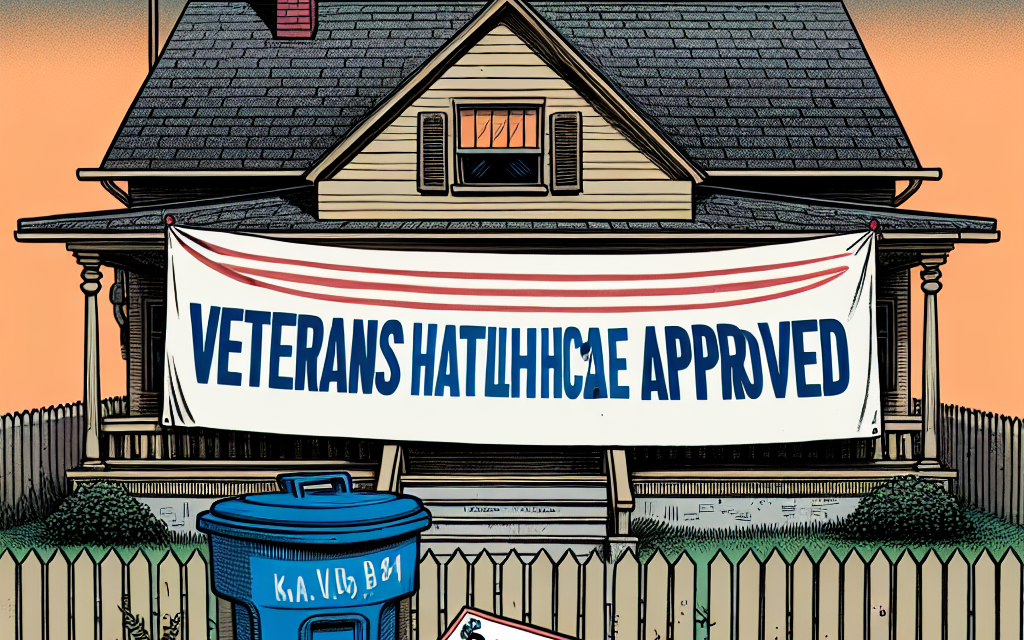House Approves Veterans Healthcare Bill Excluding RESET Act
The recent approval of a significant veterans healthcare bill by the House of Representatives has sparked discussions across the nation. This legislation aims to enhance healthcare services for veterans, but notably, it excludes the RESET Act, which has been a point of contention among lawmakers and veterans’ advocates. This article delves into the implications of this decision, the context surrounding the veterans healthcare system, and the potential impact on veterans across the United States.
Understanding the Veterans Healthcare Bill
The veterans healthcare bill recently passed by the House is designed to address various issues within the Department of Veterans Affairs (VA) healthcare system. This legislation seeks to improve access to care, streamline processes, and enhance the quality of services provided to veterans. The bill includes provisions for funding, staffing, and infrastructure improvements, which are critical for meeting the growing demands of the veteran population.
Key components of the bill include:
- Increased funding for mental health services
- Expansion of telehealth services
- Improvements in the claims processing system
- Enhanced support for women veterans
- Investment in healthcare facilities and technology
These measures are essential as they aim to address the long-standing issues of accessibility and quality of care that many veterans face. The bill reflects a growing recognition of the unique healthcare needs of veterans, particularly in light of the increasing number of service members returning from deployment.
The Exclusion of the RESET Act
The RESET Act, which stands for the “Reinforcing Essential Support for Every Transitioning Veteran” Act, was designed to provide additional resources and support for veterans transitioning from military to civilian life. Its exclusion from the recent healthcare bill has raised concerns among advocates who believe that the provisions of the RESET Act are crucial for ensuring a smooth transition for veterans.
Key aspects of the RESET Act include:
- Job training and employment assistance
- Access to mental health resources during transition
- Support for housing and financial stability
- Comprehensive case management services
- Collaboration with local organizations to provide community support
The decision to exclude the RESET Act from the veterans healthcare bill has been met with criticism from various quarters. Advocates argue that without the support mechanisms outlined in the RESET Act, many veterans may struggle to reintegrate into civilian life, potentially leading to increased rates of unemployment, homelessness, and mental health issues.
The Current State of Veterans Healthcare
The veterans healthcare system has faced numerous challenges over the years, including long wait times for appointments, inadequate staffing, and a lack of resources. According to a report by the VA, nearly 1.5 million veterans were waiting for healthcare appointments in 2022, highlighting the urgent need for reform.
Some of the most pressing issues within the veterans healthcare system include:
- Access to timely care: Many veterans report long wait times for appointments, which can exacerbate health issues.
- Quality of care: There have been concerns about the quality of care provided, particularly in rural areas where access to VA facilities may be limited.
- Mental health services: The need for mental health support has grown, especially among veterans returning from combat zones.
- Substance abuse: Many veterans struggle with substance abuse issues, which can complicate their healthcare needs.
- Coordination of care: Fragmented services can lead to gaps in care, making it difficult for veterans to navigate the system.
In response to these challenges, the recent veterans healthcare bill aims to implement reforms that address these issues. By increasing funding and resources, the bill seeks to improve access to care and enhance the overall quality of services provided to veterans.
The Importance of Mental Health Services
Mental health services are a critical component of veterans’ healthcare, particularly as many service members return from deployment with conditions such as post-traumatic stress disorder (PTSD), depression, and anxiety. The VA has recognized the importance of mental health support and has made efforts to expand these services in recent years.
Statistics reveal the urgent need for mental health services among veterans:
- Approximately 20 veterans die by suicide each day, highlighting the need for effective mental health interventions.
- About 30% of veterans who served in Iraq and Afghanistan report experiencing PTSD.
- Only about half of veterans with mental health conditions seek treatment, often due to stigma or lack of access.
The veterans healthcare bill includes provisions for increasing funding for mental health services, which is a positive step toward addressing these critical needs. By expanding access to mental health resources, the bill aims to reduce the stigma associated with seeking help and ensure that veterans receive the support they need.
Future Implications for Veterans
The approval of the veterans healthcare bill, despite the exclusion of the RESET Act, has significant implications for veterans across the country. While the bill addresses many pressing issues within the healthcare system, the lack of support for transitioning veterans raises concerns about their overall well-being.
As the bill moves forward, it will be essential for lawmakers to consider the broader context of veterans’ needs. This includes not only healthcare but also employment, housing, and community support. The exclusion of the RESET Act may hinder efforts to provide comprehensive support for veterans as they transition to civilian life.
In conclusion, the recent approval of the veterans healthcare bill marks a significant step toward improving healthcare services for veterans. However, the exclusion of the RESET Act raises important questions about the adequacy of support for transitioning veterans. As the legislative process continues, it will be crucial for advocates and lawmakers to work together to ensure that all aspects of veterans’ needs are addressed, ultimately leading to a more effective and supportive system for those who have served our country.
Conclusion
The House’s approval of the veterans healthcare bill is a pivotal moment in the ongoing effort to improve the healthcare system for veterans. While the bill includes essential provisions aimed at enhancing access and quality of care, the exclusion of the RESET Act highlights a significant gap in support for veterans transitioning to civilian life. As we move forward, it is imperative that lawmakers and advocates collaborate to address these gaps and ensure that all veterans receive the comprehensive support they deserve.
In summary, the key takeaways from this article include:
- The veterans healthcare bill aims to improve access and quality of care for veterans.
- The exclusion of the RESET Act raises concerns about support for transitioning veterans.
- The current state of veterans healthcare is marked by challenges such as long wait times and inadequate mental health services.
- Mental health support is critical for veterans, with alarming statistics highlighting the need for effective interventions.
- Future efforts must focus on comprehensive support for veterans, addressing not only healthcare but also employment and community integration.
As discussions continue, it is essential to keep the needs of veterans at the forefront, ensuring that they receive the care and support they have earned through their service.





